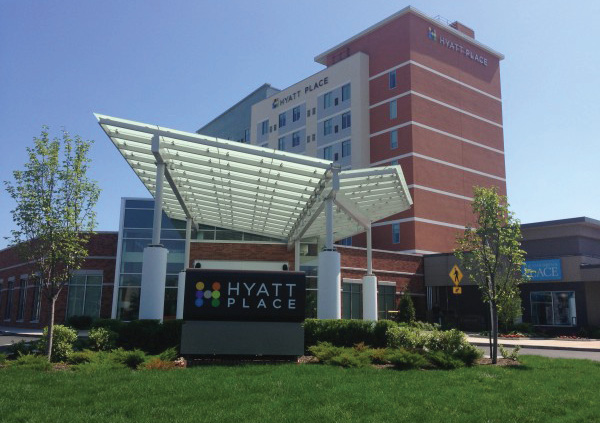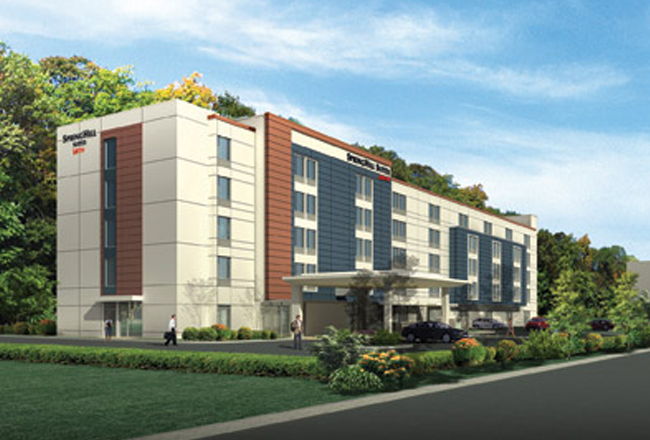A number of villages and towns in Westchester County won a long-fought battle a year ago when Gov. Andrew M. Cuomo signed into law on New Year”™s Eve 2016 a series of bills that allowed 14 county municipalities to pursue a tax on hotel room bookings. A year later, a majority of those local governments have enacted the tax and have budgeted additional revenue from it.
Municipalities such as Greenburgh had fought for the right to charge a 3 percent local occupancy tax for years, arguing the tax could help raise revenues from out-of-town visitors, potentially reducing the burden on property taxpayers. Cuomo had vetoed a similar bill for a local hotel tax in 2015, arguing that the state has in the past only allowed the tax for cities and counties.
The tax had been opposed by hotels in the county. It was lobbied against by the Westchester Hotel Association, which told the governor the taxes would only further burden hotels in a highly competitive metro New York market.
John Ravitz, executive vice president of The Business Council of Westchester, said it”™s hard to gauge the impact of the taxes so soon, but that the business group planned to work with the county hotel association to track long-term effects. Ravitz said the biggest concern in the hotel industry is not the loss of individual visitors as much as the potential loss of corporate clients and large meetings.
“What it”™s going to affect are the corporations we have in Westchester County that during the course of the year might book a floor of rooms for consultants and staff from other parts of the country,” Ravitz said. “Or a trade association that might be doing any type of convention or trade show, because that”™s where they”™re going to get hit.”
“The concern that folks in the hotel industry have is that if these organizations see that they”™re going to be hit with this occupancy tax, they could look over the Mario Cuomo Bridge in Rockland County,” he said.

A tax on the booking of hotel rooms is not new to Westchester. The county collects about $6.5 million yearly from its 3 percent tax on hotel room bookings. Several of Westchester”™s cities ”” White Plains, Yonkers, New Rochelle and Rye ”” along with the village of Rye Brook, also already collect a 3 percent occupancy tax, which is charged on top of the county tax.
White Plains, for example, expects to collect $1.2 million from its hotel occupancy tax for its fiscal year ending in June, according to its 2017-18 operating budget. Rye Brook, the first village in New York approved to charge a hotel occupancy tax, projected $650,000 in revenue from the tax in its 2017-18 fiscal year budget. Projections for both municipalities were up from estimates the year before.
The bills signed by Cuomo in December 2016 cleared the way for additional municipalities in the county to pursue a 3 percent occupancy tax. Most of those 14 approved municipalities have already passed laws to implement the tax, though some municipalities without local hotels have held off.
In Greenburgh, the hotel tax was approved unanimously in January 2017, with the tax taking effect in February.
Town Supervisor Paul Feiner advocated for years for Greenburgh to be allowed to charge the tax. He said the town is on track to collect close to $1 million in hotel tax in its first year. The town is home to the Westchester Marriott, Courtyard by Marriott and Sheraton.
“The hotel tax has been a big help to the town and has enabled the town to comply with the tax cap,” Feiner said in an email. “We appreciate the help the state gave us ”” giving the town the same revenue as other communities in Westchester that previously had the tax.”
In Tarrytown, the village board approved the hotel tax at its first regular February meeting. In its 2017-18 budget, adopted in April, the village projected it would collect $350,000 from the tax, which took effect March 1.
Elmsford approved the tax at a January board meeting and put it into effect March 1. The village is home to the Elmsford Motel and a Days Inn, both just off the Saw Mill River Parkway, and an Extended Stay America and Hampton Inn on Route 119.
The village expected revenues of $300,000 from the tax in its 2017-18 budget, a number that Village Manager Michael Mills said Elmsford is on track to meet after two quarters.
The hotel tax also passed in Harrison, which has a Hyatt House and Renaissance hotel, both off Westchester Avenue. The tax, implemented in April, also applies to the Westchester Country Club, which has 72 guest rooms. Harrison Comptroller Maureen MacKenzie said the village and town collected about $160,000 from the tax in 2017.
North Castle, which has a La Quinta Inn & Suites, adopted the hotel tax in February, with its implementation on March 1. The tax brought about $33,000 to the town in 2017, according to its 2018 budget outline.
The Ardsley village board passed the tax in February. The village is home to Ardsley Acres Hotel and Apple Motor Inn. Ardsley”™s 2017-18 budget, passed in the spring, forecasted about $85,000 in revenue from the tax, which took effect in March.
The village of Mamaroneck, which has two motels, passed the hotel tax last year, but Village Manager Robert A. Yamuder said the village did not yet have estimates available on expected revenue.
The village of Mount Kisco passed the tax in July, with a stipulation that the money raised from the tax go toward economic development in the village.
The village”™s only hotel is a 118-room Holiday Inn. The tax went into effect in August. Village Manager Edward Brancati said the village collected about $30,000 in its first quarter with the 3 percent hotel room tax and expects to collect about $120,000 per year.
Other villages and towns without hotels enacted the tax to prepare for new development projects expected to add hotel rooms.
Dobbs Ferry approved the tax in February and put it into effect in April. While the village does not have a hotel, a Hilton Garden Inn is expected to open this year at Rivertowns Square, the mixed-use retail and residential complex under development along the Saw Mill River Parkway by a joint venture of Dobbs Ferry Capital Partners LLC and Saber Real Estate Advisors.
With that hotel yet to open, the hotel tax was expected to increase revenues for the village by $25,000 in its 2017-18 budget. But with a full year in operation, the village has estimated the tax would bring in more than $100,000, according to estimates at its February board meeting.
Tuckahoe, also a village without a hotel, approved a tax in September. A 153-room Marriott Springhill Suites is expected to open sometime this year on Marbledale Road.
Tuckahoe Village Administrator David Burke said the village has not yet projected revenue from the tax, as it is still planning its next 2018-19 fiscal year budget.
Other municipalities have held off on enacting a hotel tax.
In Sleepy Hollow, Village administrator Anthony Giaccio said the village lobbied for the tax in anticipation of a 140-room boutique hotel that would be built as part of a nearly billion dollar redevelopment of the former General Motors site in the village. But until that”™s up and running, Giaccio said the village will hold off on consideration of the hotel tax.
Both Port Chester and Hastings-on-Hudson do not have hotels and haven’t adopted a hotel tax. Hastings-on-Hudson Village manager Fran Frobel said the village would not benefit from the tax, but supported the home-rule request to help out municipalities that could.
For Port Chester, a 153-room hotel was part of the plans for a $450 million redevelopment of the village’s former United Hospital campus by Starwood Capital Group. The village approved a zoning change to allow for the project last year, but Starwood has since put the property on the market.
Irvington also did not pass a local hotel tax in 2017, but Village Administrator Lawrence Schopfer said the village will be considering passing one sometime this year. While Irvington has no hotels, Schopfer said the village would focus on the tax”™s applicability to Airbnb and similar rental sites.



















If these towns don’t offset and lower property taxes with this new income it’ll get wasted and lead to more bloated government which isn’t good and does nothing to control long term expenses.